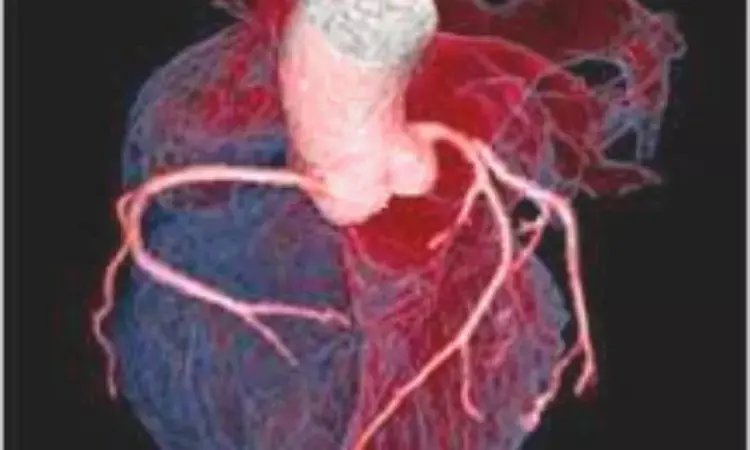- Home
- Medical news & Guidelines
- Anesthesiology
- Cardiology and CTVS
- Critical Care
- Dentistry
- Dermatology
- Diabetes and Endocrinology
- ENT
- Gastroenterology
- Medicine
- Nephrology
- Neurology
- Obstretics-Gynaecology
- Oncology
- Ophthalmology
- Orthopaedics
- Pediatrics-Neonatology
- Psychiatry
- Pulmonology
- Radiology
- Surgery
- Urology
- Laboratory Medicine
- Diet
- Nursing
- Paramedical
- Physiotherapy
- Health news
- Fact Check
- Bone Health Fact Check
- Brain Health Fact Check
- Cancer Related Fact Check
- Child Care Fact Check
- Dental and oral health fact check
- Diabetes and metabolic health fact check
- Diet and Nutrition Fact Check
- Eye and ENT Care Fact Check
- Fitness fact check
- Gut health fact check
- Heart health fact check
- Kidney health fact check
- Medical education fact check
- Men's health fact check
- Respiratory fact check
- Skin and hair care fact check
- Vaccine and Immunization fact check
- Women's health fact check
- AYUSH
- State News
- Andaman and Nicobar Islands
- Andhra Pradesh
- Arunachal Pradesh
- Assam
- Bihar
- Chandigarh
- Chattisgarh
- Dadra and Nagar Haveli
- Daman and Diu
- Delhi
- Goa
- Gujarat
- Haryana
- Himachal Pradesh
- Jammu & Kashmir
- Jharkhand
- Karnataka
- Kerala
- Ladakh
- Lakshadweep
- Madhya Pradesh
- Maharashtra
- Manipur
- Meghalaya
- Mizoram
- Nagaland
- Odisha
- Puducherry
- Punjab
- Rajasthan
- Sikkim
- Tamil Nadu
- Telangana
- Tripura
- Uttar Pradesh
- Uttrakhand
- West Bengal
- Medical Education
- Industry
CCTA Enhances Assessment of LV Diastolic Dysfunction in CAD Patients with Normal EF: Study Finds

India: A recent study highlights the growing role of Cardiac CT Angiography (CCTA) in assessing left ventricular (LV) diastolic dysfunction (DD) in patients with suspected coronary artery disease (CAD) and normal ejection fraction. The research compares the efficacy of CCTA with the traditional method of transthoracic echocardiography (TTE) in evaluating LV diastolic function, revealing promising results for CCTA as a valuable diagnostic tool in this population.
The study, published in the Echocardiography Journal, demonstrates that CCTA-derived diastolic expansion index (DEI), a metric obtained from CCTA scans, is a reliable and reproducible measure for evaluating LV diastolic dysfunction in CAD patients with normal ejection fraction.
The research found that DEI derived from CCTA correlated well with the severity of LV diastolic dysfunction, indicating its potential as a reliable alternative to TTE. The study also highlighted that obstructive coronary artery disease and an increased coronary artery calcium score were significantly associated with worsening degrees of diastolic dysfunction.
Diastolic dysfunction refers to impaired left ventricular relaxation, often resulting from structural or functional heart conditions. Sanjeev Kumar from All India Institute of Medical Sciences in New Delhi, India, and colleagues aimed to evaluate the role of cardiac CT angiography in assessing LV DD in patients with normal ejection fraction (EF) using the diastolic expansion index. They also compared its effectiveness with transthoracic echocardiography, the established gold standard.
The study revealed the following findings:
- The study included 141 patients (60 male), with a mean age of 50.82 ± 10.20 years and a mean heart rate of 84.90 ± 16.15 beats per minute.
- CCTA-derived mean indexed LA volumes were larger than the TTE measurements, with a correlation of r = 0.53.
- A progressive increase in the LA volume index was observed with worsening diastolic dysfunction (DD) grades.
- Excellent inter-observer correlation was found for LA volume index (intra-class correlation coefficient: 0.999) and DEI (0.996).
- Normal LV diastolic function was predicted by a DEI > 1.57, with a sensitivity of 81.6%, specificity of 88.3%, and an area under the curve (AUC) of 0.87.
- Abnormal LV diastolic function was predicted by DEI < 1.46, with sensitivity of 62.5%, specificity of 84.8%, and AUC of 0.848.
- A significant correlation was found between the presence of obstructive CAD and increased calcium score with worsening DD grade.
"The study showed that CCTA-derived DEI is an effective tool for evaluating LV diastolic dysfunction in patients with suspected CAD and normal ejection fraction. Additionally, the presence of obstructive CAD and higher calcium scores were linked to more severe diastolic dysfunction," the researchers wrote.
"These findings suggest that CCTA not only offers a comprehensive view of coronary artery status but also provides valuable insights into the functional impairment of the left ventricle, which may otherwise go unnoticed," they concluded.
Reference:
Suresh Kumar, A. F., Ojha, V., Veettil, S. T., Mantoo, M., Singh, D., Pandey, N. N., Jagia, P., Yadav, S., & Kumar, S. (2024). Incremental Role of Cardiac CT Angiography in the Assessment of Left Ventricular Diastolic Function in Patients With Suspected Coronary Artery Disease With Normal Ejection Fraction: A Comparison With Transthoracic Echocardiography. Echocardiography, 42(1), e70069. https://doi.org/10.1111/echo.70069
Dr Kamal Kant Kohli-MBBS, DTCD- a chest specialist with more than 30 years of practice and a flair for writing clinical articles, Dr Kamal Kant Kohli joined Medical Dialogues as a Chief Editor of Medical News. Besides writing articles, as an editor, he proofreads and verifies all the medical content published on Medical Dialogues including those coming from journals, studies,medical conferences,guidelines etc. Email: drkohli@medicaldialogues.in. Contact no. 011-43720751


